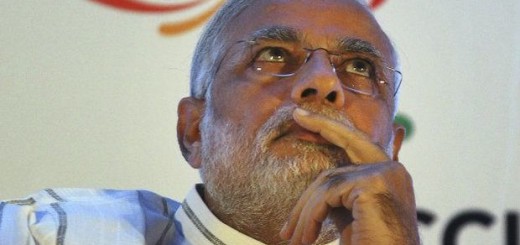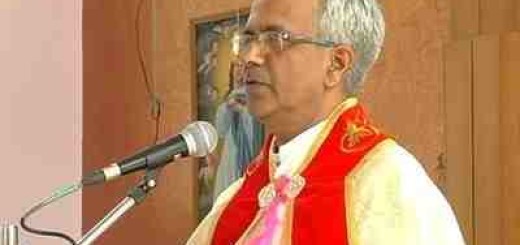Church mouthpiece accused of promoting ‘heretical’ views

Hindustan Times (Mumbai), MANOJ R NAIR manoj.nair@hindustantimes.com (Curtsy -The Laitytude, Mumbai)
Even as the uproar over the Indian government’s promotion of Yoga has died down, the debate whether the practice is compatible with certain religious beliefs continues. After criticising theologians and priests for supporting Yoga, some community blogs have now accused the weekly The Examiner, the mouthpiece of Mumbai’s Roman Catholic establishment, of promoting ‘heretical’ views by publishing articles on the practice. Apostasy (abandoning religion), Heresy (dissention) and Gnosticism (a heretical movement in the early church) – words that were more likely to be used against non-believers in another period in history – have been used to describe those who wrote about Yoga.
The bloggers have called themselves ‘orthodox’ but their critics have accused them of being ‘radicals’.
One of the articles that has been criticised was written by Thomas Dabre, the bishop of Pune, who discussed the possible therapeutic benefits of Yoga on the mind and body. The groups are particularly incensed at his writings because Dabre is an important figure in the church: besides heading a large diocese, he is also a former head of the Doctrinal Commission of the Catholic Bishops Conference of India (CBCI) – an important decision-making body of the church. He is also an expert in culture and religion, having authored an important book on the life of the 17th century poet Sant Tukaram.
In his article, Dabre had said practising Yoga as therapy could provide physical and mental benefits. In response to the accusations that he was promoting the practice, Dabre has said he is not an ambassador for Yoga. “But as a Catholic theologian, I can comment on society.”
The Examiner, too, like Dabre, has said its articles on Yoga just reflected the social debate on the issue. Father Tony Charanghat, the weekly’s editor, is currently not in India, but a spokesperson said that every article in the journal did not reflect the church’s official stand on the issue. “The magazine gives space to people who have different views on a subject; we publish some of the letters that we receive. Similarly we also get articles from our readers that we sometimes print. The opinion given in the letters and articles are never our views and this is clearly mentioned in the magazine.”
The spokesperson added: “We publish articles that are thematic – issues that people are talking about.”
But the critics of the articles are not satisfied with this answer from the magazine; they want the church headquarters to issue an official statement on its view on Yoga.
Much of the criticism against the articles on Yoga has appeared on blogs written in Mumbai, but some articles are also from Chennai where a writer Michael Prabhu, who runs a website, has accused the theologians of misleading followers by misinterpreting two Vatican documents that said that practice of certain traditions, including eastern meditation and yoga, are not compatible with their faith.
“My calling (from God) is to expose errors in the church. When bishops and priests commit liturgical and doctrinal errors, I bring it to their notice,” said Prabhu who said that he has ‘nothing’ against other religions. “Yoga is not a form of physical exercise; it is a religious ritual, but the theologians are interpreting it to their fancies.”
Another senior theologian who has been criticised by the groups is Mumbai’s Bishop Agnelo Gracias, who is also associated with the Doctrinal Commission. This diarist spoke to Gracias who, explaining that he was attending an important official assignment out of Mumbai, declined to comment on the controversy. He promised to talk about the issue after coming back to the city.
















